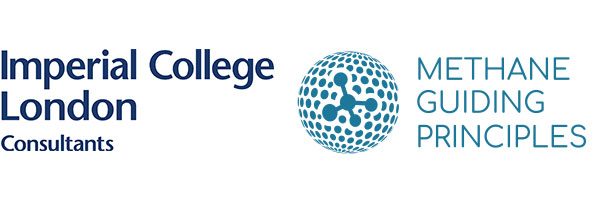This self-paced 2-hour eLearning training course on Methane Guiding Principles will teach delegates the why and how to manage methane emissions across the natural gas value chain. Explore technologies and best practices, and learn how to evaluate methane detection, measurement, and reduction options.
Providing access to energy, while addressing global climate change, is one of the greatest challenges of the 21st century. Natural gas plays a major role in meeting global energy demand today. Since natural gas consists mainly of methane, a potent greenhouse gas, its part in the transition to a low carbon future will be influenced by the extent to which the oil and gas supply chain reduce its methane emissions.
The Energy Institute (EI) has partnered with Methane Guiding Principles (MGP) and Dr. Adam Hawkes / experts from Imperial College London’s Sustainable Gas Institute to offer a Masterclass that is intended to help participants understand methane emissions and learn how best to mitigate them through the nine intended learning outcomes from the course. 
Learning Objectives:
This course is intended to help you understand methane emissions and learn how best to mitigate them through our nine intended learning outcomes from the course:
- The ability to construct a case for methane emissions reductions relevant to your organisation.
- Classify the types of methane emissions and differentiate emissions types in energy supply chains.
- Understand the distribution of methane emissions and its implications for abatement activities.
- List the types of methane emissions detection and quantification technology available and differentiate them in terms of the types of emissions they are intended for.
- Identify possible sources of fugitive emissions in gas supply chains, and their abatement and management approaches.
- Identify possible sources of venting emissions in gas supply chains, and their abatement and management approaches.
- Identify possible sources of incomplete combustion emissions in gas supply chains, and their abatement and management approaches.
- Understand when to address methane emissions in the lifecycle of an asset.
- Continually improve your organisations approaches to methane emissions management.
The Methane Guiding Principles* (MGP) Global Outreach Programme aims to develop leadership in methane emissions reduction in oil and gas supply chains worldwide. It sets out the business case for reducing methane emissions, communicates understanding on sources, magnitude, and identification/quantification methods for methane emissions, and presents the MGP Reducing Methane Emissions Best Practices alongside real-world case studies.
Course Format:
This training course is delivered on the Energy Institute's Moodle Learning Management System, consisting of 2 hours of self-paced eLearning via bite-sized pre-recorded video content, quizzes to consolidate learning as well as reading lists and relevant resources.
Course Overview:
INTRODUCTION
- The methane emissions reduction business case
- Understanding emissions in gas supply chains
REDUCING EMISSIONS BEST PRACTICES
- Overview
- Fugitive emissions
- Venting
- Incomplete combustion
- Transmission and distribution
- Design and construction
- Continuous improvement
- Summary
Learn More:
- Methane Guiding Principles - www.methaneguidingprinciples.org
- Imperial College - https://www.imperial.ac.uk/news/213293/methane-guiding-principles-global-outreach-programme
In-House Training:
This training course can be tailored to your organization, with options to build in instructor-led training and hosting on your own Learning Management System. Please contact the training team to discuss options and packages further.
Contact details
Training Team: [email protected], 02074677178